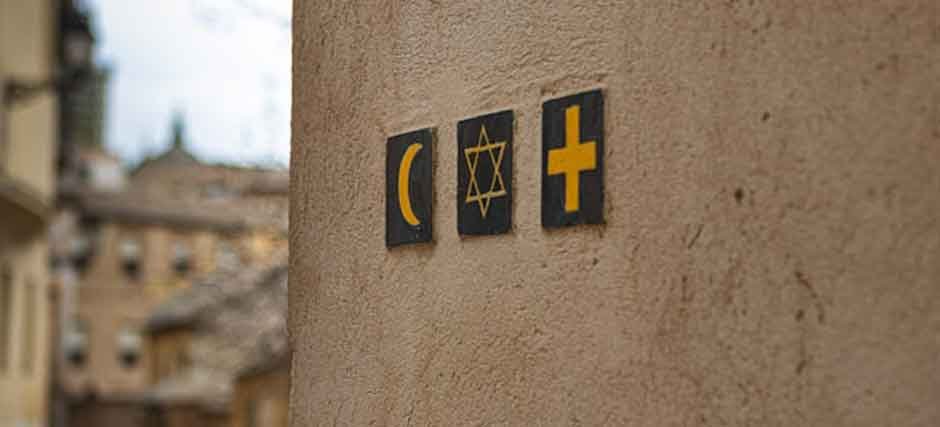Religion has been a cornerstone of human civilization for millennia, shaping cultures, societies, and individual lives in profound ways. While the world undergoes rapid changes, religious practices remain deeply ingrained in many communities. Despite modernization and technological advancements, certain religious acts continue to hold immense significance and are practiced fervently across the globe in 2024. Here are five important religious acts that still happen around the world:
1. Pilgrimage to Mecca (Hajj)
One of the Five Pillars of Islam, the Hajj is a pilgrimage to the holy city of Mecca in Saudi Arabia. Every Muslim who is able is required to undertake this journey at least once in their lifetime. The Hajj occurs annually during the Islamic month of Dhu al-Hijjah. It draws millions of Muslims from diverse backgrounds to participate in rituals that commemorate the actions of Prophet Abraham and his family. The pilgrimage includes rituals such as the Tawaf (circumambulation) of the Kaaba, symbolic stoning of the devil at Mina, and the standing vigil at Mount Arafat. Despite logistical challenges and occasional controversies, the Hajj remains a profound spiritual journey for Muslims worldwide.
2. Kumbh Mela
The Kumbh Mela is a mass Hindu pilgrimage and festival. It’s held at four sacred riverbank locations in India: Haridwar, Prayagraj (formerly Allahabad), Nashik, and Ujjain. It is one of the largest religious gatherings in the world. Millions of devotees come to bathe in the holy rivers, seeking purification and spiritual renewal. The Kumbh Mela is based on the belief that bathing in the sacred waters during specific astrological alignments can cleanse sins and bestow blessings.
3. Pilgrimage to Jerusalem
Jerusalem holds immense significance in Judaism, Christianity, and Islam, making it a focal point for religious pilgrimage and devotion. While there, many reflect upon the persecution of Christians throughout history. For Jews, the Western Wall (Wailing Wall) is a sacred site of prayer and reflection, while Christians revere the Church of the Holy Sepulchre, believed to be the site of Jesus Christ’s crucifixion and resurrection. Muslims regard the Dome of the Rock and Al-Aqsa Mosque as holy places associated with Prophet Muhammad’s Night Journey. Despite ongoing geopolitical tensions and occasional conflicts in the region, pilgrims from around the world continue to journey to Jerusalem to pay homage to their religious heritage and connect with the sacred history of the city.
4. Varanasi Ganga Aarti
Varanasi, also known as Kashi or the City of Light, holds immense spiritual significance in Hinduism. It’s one of the oldest continuously inhabited cities in the world. Considered a sacred site, it’s situated on the banks of the river Ganges. The Ganga Aarti is a religious ritual performed daily at the Dashashwamedh Ghat in Varanasi. Priests offer prayers, chant mantras, and make ceremonial offerings to the river goddess Ganga.
5. Passover Seder
Passover, or Pesach, is a major Jewish festival commemorating the liberation of the Israelites from slavery in ancient Egypt. Central to the observance of Passover is the Seder, a ritual meal held on the first two nights of the holiday, during which participants retell the story of the Exodus, recite prayers and blessings, and partake in symbolic foods such as matzo (unleavened bread), bitter herbs, and wine. The Passover Seder remains a cherished tradition in Jewish households worldwide, where families and friends gather to reaffirm their identity, faith, and connection to Jewish history and heritage. In 2024, modern technology has made it easier for Jews living in different parts of the world to participate in virtual Seders, ensuring that the tradition continues to be observed even amidst challenging circumstances.
The World Is Still Steeped in Religion
In conclusion, these five important religious acts exemplify the enduring power of faith, tradition, and spirituality in shaping the lives of people around the world. Many people have come to rely upon religious ceremonies for comfort. Despite the passage of time and the ever-changing landscape of society, these rituals continue to serve as sources of inspiration, reflection, and communal solidarity, bridging the gap between the past and the present as believers affirm their commitment to their religious beliefs and practices.


